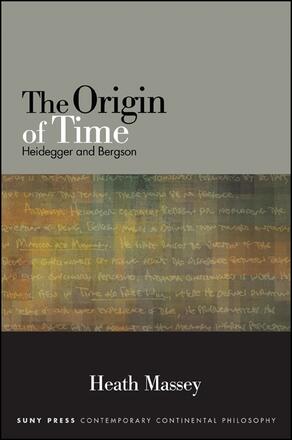
The Origin of Time
Heidegger and Bergson
Alternative formats available from:
A critical examination of the relationship between the philosophies of Martin Heidegger and Henri Bergson, focusing on the central issue of time.
Description
The recent renewal of interest in the philosophy of Henri Bergson has increased both recognition of his influence on twentieth-century philosophy and attention to his relationship to phenomenology. Until now, the question of Martin Heidegger's debt to Bergson has remained largely unanswered. Heidegger's brief discussion of Bergson in Being and Time is geared toward explaining why he fails in his attempts to think more radically about time. Despite this dismissal, a close look at Heidegger's early works dealing with temporality reveals a sustained engagement with Bergson's thought. In The Origin of Time, Heath Massey evaluates Heidegger's critique of Bergson and examines how Bergson's efforts to rethink time in terms of duration anticipate Heidegger's own interpretation of temporality. Massey demonstrates how Heidegger follows Bergson in seeking to uncover "primordial time" by disentangling temporality from spatiality, how he associates Bergson with the tradition of philosophy that covers up this phenomenon, and how he overlooks Bergson's ontological turn in Matter and Memory. Through close readings of early major works by both thinkers, Massey argues that Bergson is a much more radical thinker with respect to time than Heidegger allows.
Heath Massey is Associate Professor of Philosophy at Beloit College.